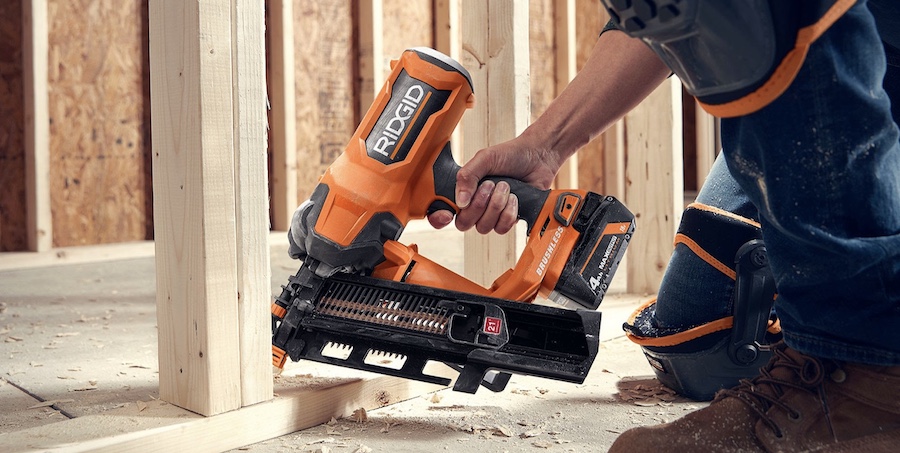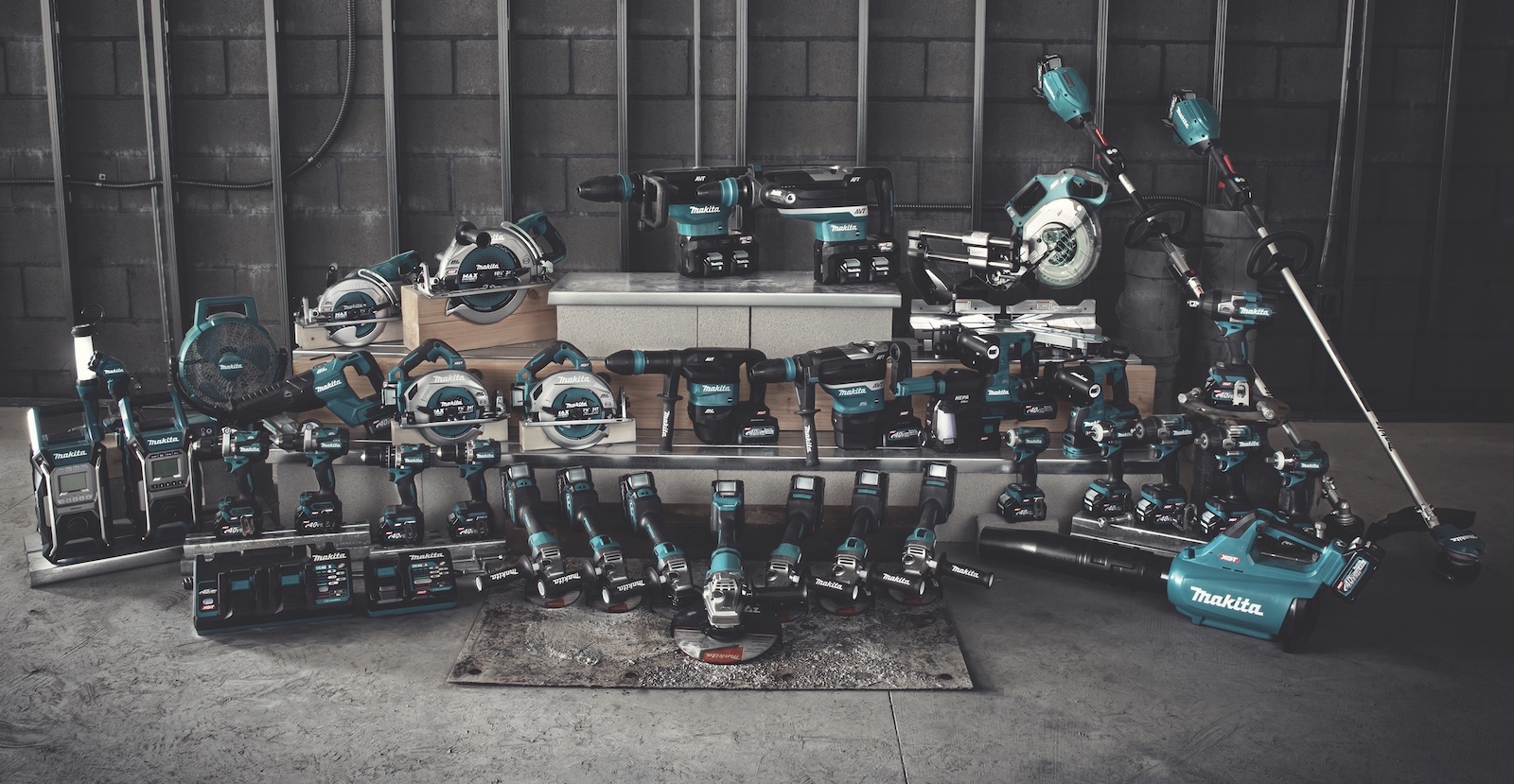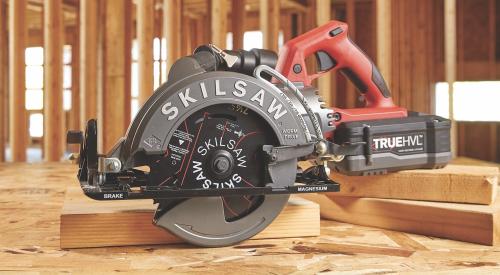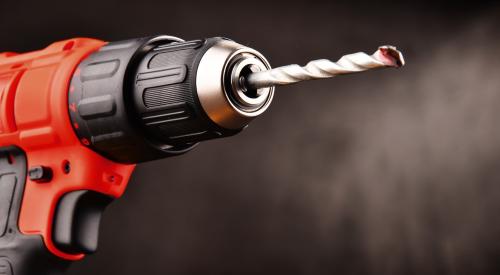If you performed an audit of all the cordless tools on the jobsite of a typical new home or residential remodel, there’s a strong likelihood you’d find the bulk of them rely on lithium-ion batteries.
Though there are three main types of battery technology on the market—lithium-ion, nickel-metal hydride, and nickel cadmium (NiCd)—power tool manufacturers have largely shifted to lithium-ion, and contractors have reaped the benefits.
What’s so good about these batteries? For one thing, they allow manufacturers to make more compact tools that are lighter yet powerful enough to perform many jobsite tasks. Compared with NiCd batteries, lithium-ion batteries are repeatedly rechargeable with minimal memory effect, so each unit’s energy capacity doesn’t diminish over time the way it does with other batteries, and lithium-ion batteries charge faster and can hold their charge for longer.
A recent study and forecast of battery-powered tools by Market Research Future, a market analysis company, found that the increasing popularity of lithium-ion batteries can also be attributed to longer runtimes, flexible charging, and the fact that they will not discharge or lose power if stored for an extended period of time.
RELATED
- 5 Tough, Practical Truck Accessories for Construction Pros
- 2020 Pro Builder Top 100 Products
- 7 Tool Storage Solutions to Organize Your Jobsite
The Future for Battery-Powered Tools Looks Strong
All of these benefits are primarily why the technology is rapidly growing and will dominate the future market for power tools. “The global power tool battery market is expected to expand at a rapid pace, owing to increased demand for power tool batteries in industrial, commercial, and residential applications,” says analysis by Market Research Future, which expects the global power tool battery market to grow at an 8.52% compound annual growth rate from 2020 to 2027. The bulk of this growth will be in lithium-ion products, the firm anticipates.
But another reason why lithium-ion battery technology has become so attractive to tool manufacturers is that it has become more affordable. Market Research Future says lithium-ion battery prices fell 89% in 2020 to $137 per kilowatt hour. When you combine performance and price, it’s easy to speculate on the future of lithium power tools with a high level of confidence.
“The lithium-ion sub-segment will likely dominate the global power tool battery market,” the firm’s study concludes. “This segment’s increased share is attributed to falling lithium-ion prices and its widespread use in a variety of industries. Because of their high efficiency and ability to minimize electric shock, lithium-ion batteries are becoming increasingly popular.”
Check out some of the latest battery-powered tools.
New Battery-Powered Tools Hitting the Market
20-volt battery-powered laser
DeWalt has unveiled its first 20-volt Max Green Line Laser, which is compatible with the manufacturer’s 12V Max and 20V Max battery platforms. Offering versatility across both battery systems, the tool provides runtime of 10 hours per charge. It features a fine-adjust knob that allows for manual adjustments on the horizontal axis and vertical beams quickly and accurately. With an extensive working range of 100 feet, the laser provides accuracy of up to 1/8 inch at 30 feet, the company says.
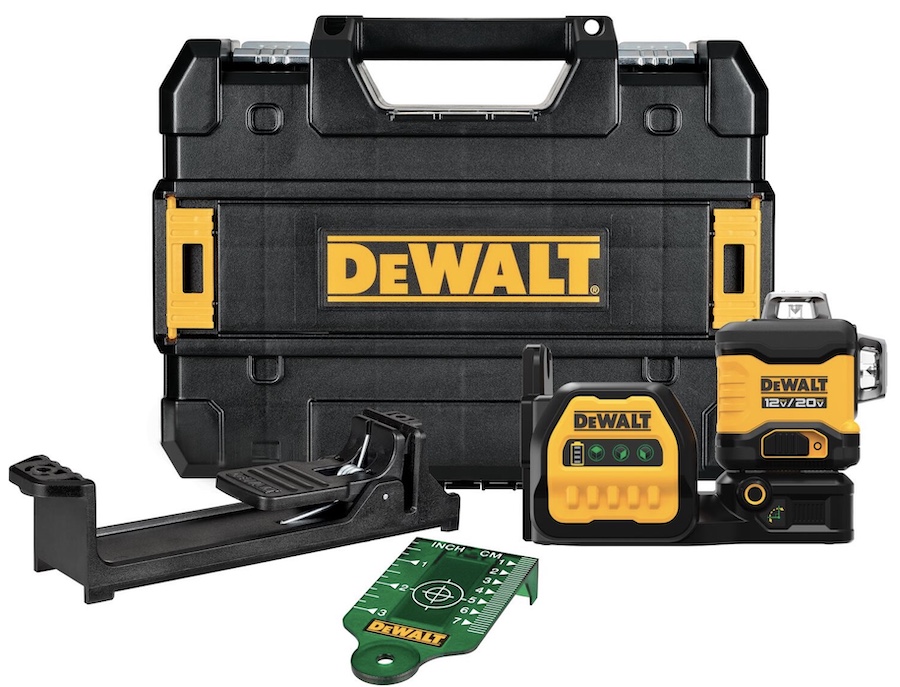
Next-gen metal connector nailer
Based on customer feedback, Paslode has introduced a redesigned next-gen 1 ½-inch Positive Placement metal connector nailer. New features include a nose and crescent-shaped driver blade that improves reliability and minimizes jamming, and an inline, one-strip magazine design for balance, maneuverability, and unobstructed operation. The brand says the new tool has enough power to drive nails flush into LVLs and harder woods.
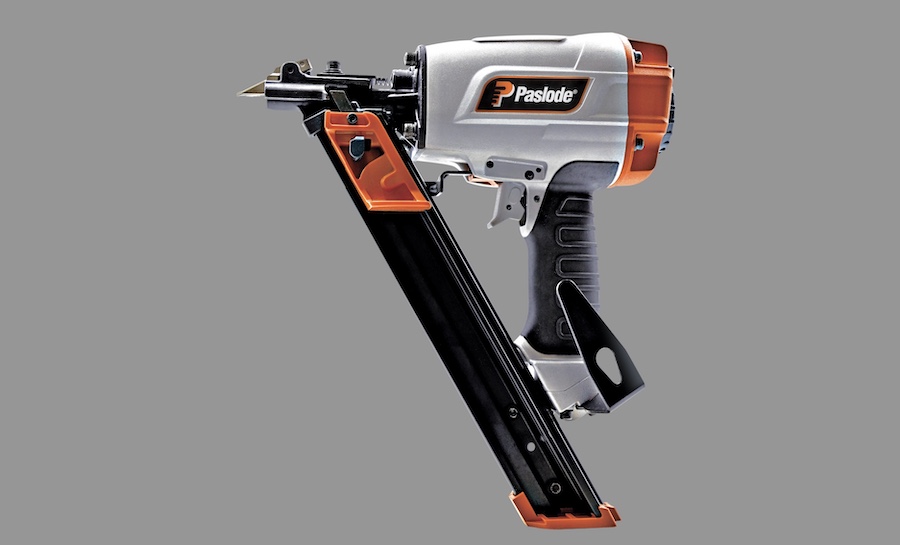
Full round-head cordless framing nailer
Senco has expanded its cordless framing nailer line with a full round-head model, opening the door for users of plastic collated nails. The F-35FRHXP drives up to 3 ½-inch full round-head, plastic collated nails that many users prefer, the company says. Built with the company’s Fusion cordless pneumatic technology, the nailer relies on a sealed, compressed-air cylinder to deliver the speed, feel, and performance of a true pneumatic tool. The F-35FRHXP is capable of sinking nails fully into the hardest substrates, including engineered lumber and OSB, the maker says.
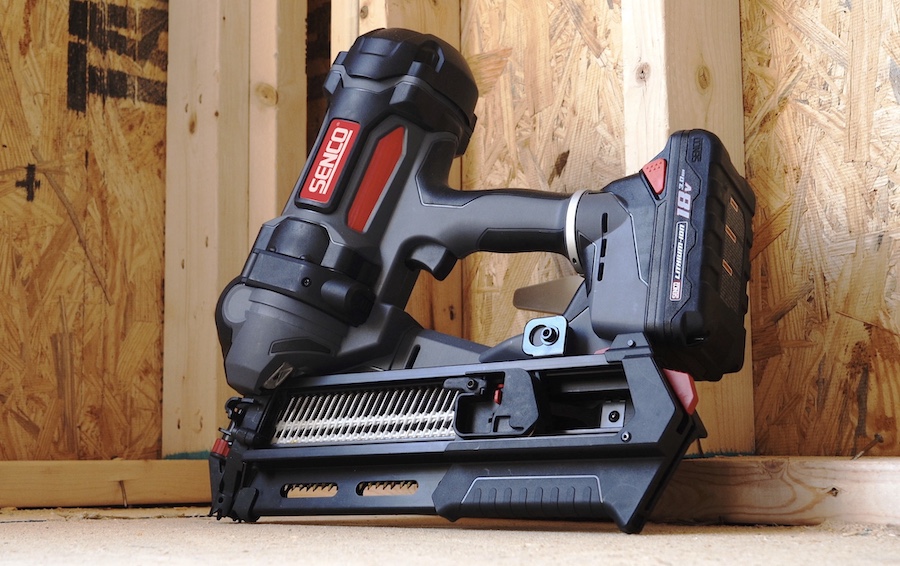
Stand-alone cordless power tool system
Makita has launched its XGT 40V Max and 80V Max cordless system of tools and equipment . The XGT system delivers more than 50 higher-powered cordless products for jobsite applications generally dominated by cords, gas, and air. Offering two power ranges, 40V max and 80V max—XGT 80V Max tools can be thought of as XGT 40V Max x2 because they pair two 40V Max XGT batteries in one tool—each product features a brushless motor with a higher volume of copper windings and rare-earth magnets for longer runtime, increased power and speed, and longer tool life, the company says. The tool range includes demolition hammers and rotary hammers; miter, circular, and reciprocating saws; angle grinders; an impact driver; impact wrenches; drills and hammer drills; lighting; and more.
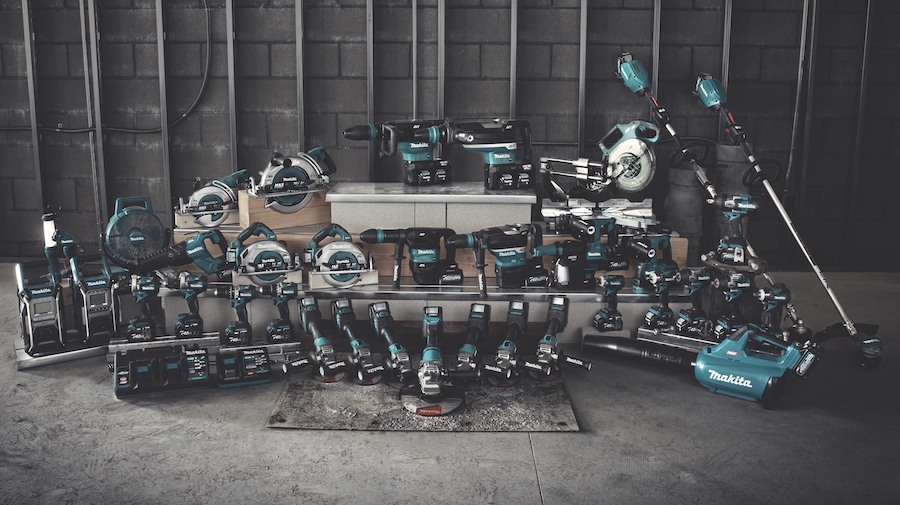
18-volt sub-compact power tool series
Metabo’s new 18-Volt Sub-Compact power tool series is designed for use when space is tight. The lineup combines power and torque in a compact size for professional use, the brand says, and is launching with a drill/driver, impact driver, and a two-piece combo kit that includes both tools. Part of the MultiVolt System of 18- and 36-volt tools, the drill delivers 485 inch-pounds of turning torque, while the impact driver weighs 1.8 pounds and is 33% faster and delivers 25% more impacts per minute, the company says.
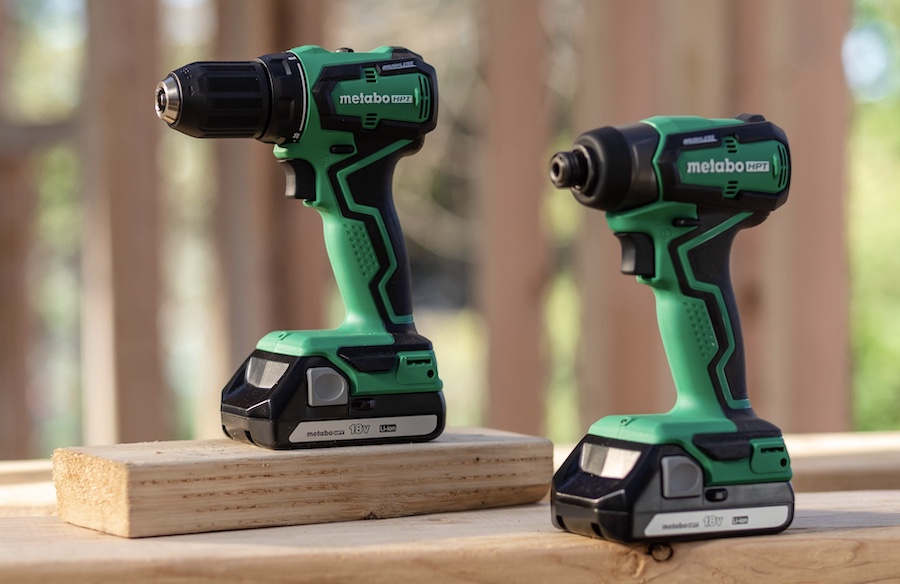
30-degree framing nailer
Milwaukee Tool’s M18 Fuel 30-degree Framing Nailer sets a new standard for cordless framing nailers, the brand says. The nailer uses the manufacturer’s nitrogen spring mechanism, brushless motor, and Redlink Plus Intelligence system that enables communication between a tool, battery, and charger. It has the power to sink full round-head nails into dense engineered lumber, to fire three nails per second with zero ramp-up time, and to operate using only the brand’s Redlithium batteries and sealed, compressed nitrogen.
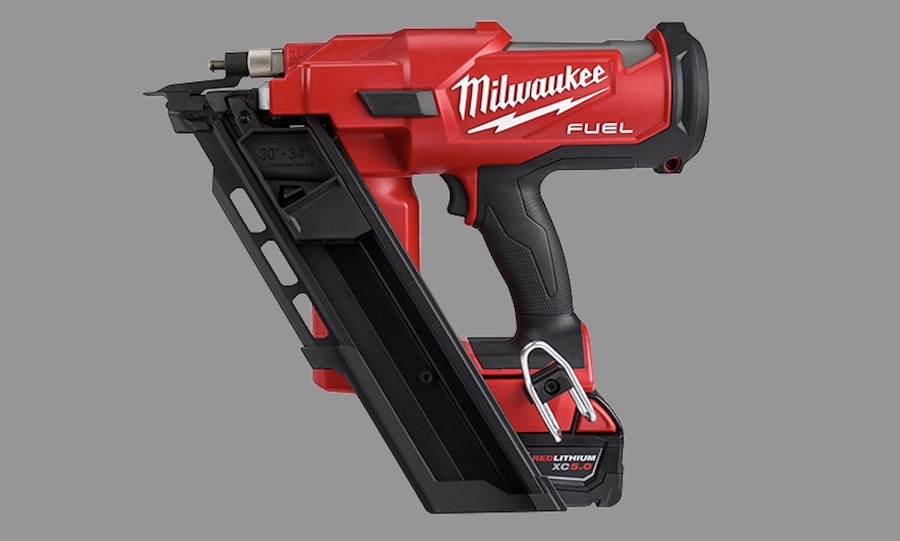
18-volt brushless 21-degree framing nailer
Ridgid’s 18-volt brushless 21-degree framing nailer provides all of the power of a pneumatic nailer but with the freedom and convenience of cordless, according to the company. With no compressor, no hose, and no gas cartridge, this nailer allows faster set-up and easier maneuvering on the jobsite, driving three nails per second with no gas cartridges and zero ramp-up time. The brushless motor delivers enough power to sink 2-inch to 3 ½-inch full round-head framing nails into engineered lumber, the company says. It also drives up to 750 nails per charge when paired with an 18V 4.0Ah battery.
